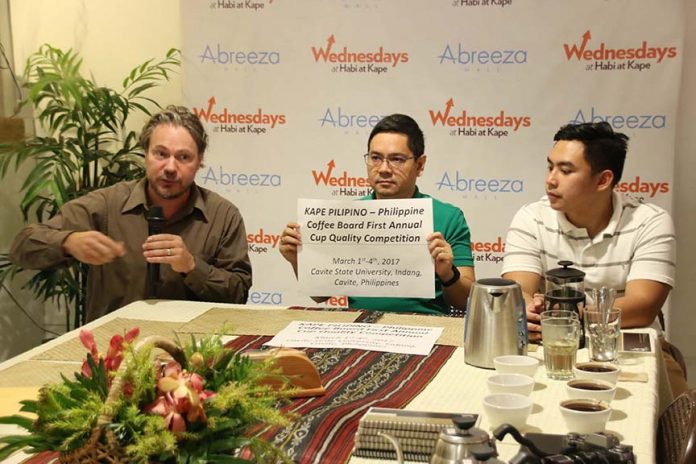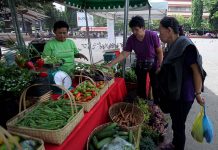
What region produces the highest quality coffee in the Philippines will be finally known with the first national cupping competition for local coffee growers dubbed, “Kape Pilipino: First Annual Cup Quality Competition” to be held on March 1 to 4, 2017 at the Cavite State University.
Thelonious Trimmell, chief of party of the Agricultural Cooperative Development International and Volunteers in Overseas Cooperative Assistance (ACDI/VOCA), announced on Wednesday the event will be hosted by Philippine Coffee Board, Inc., supported and sponsored by the Mindanao Productivity in Agriculture Commerce and Trade (MinPACT) project, implemented by ACDI/VOCA and funded by the United States Department of Agriculture.
Guesting during the Habi at Kape media forum at Abreeza Mall Davao City, Trimmell said the event follows the recently concluded series of trainings held in Davao and in Manila.
According to PCBI, the competition is open to anyone engaged in the production of coffee in the Philippines, including but not limited to coffee cooperatives, farmers, processors and exporters.
Also attending the forum, Atty. Lucky Seigfred Balleque of Department of Trade and Industry Compostela Valley said farmer associations and cooperatives as well as individual farmers are encouraged to collect five-kilo samples of their best lot of Arabica and or Robusta green beans with a moisture no higher than 11%.
Trimmel added, the samples will be cupped in late February by a panel of experts selected by CQI.
The entry forms that must accompany each of the samples submitted are available from PCBI. The entry form must be filled out and attached to the sample bag or included in the bag. For the processing, the samples could be fully washed, pulped or dried natural.
PCBI further encourages the participants to retain the quantity of the same coffee in the sample because if it wins, it may fetch a higher price after the competition.
The competition will also feature a special category for Liberica and Excelsa coffee varieties which are also found in the Philippines.
Samples will be received by specific State Universities and Colleges, namely Benguet State University, Cavite State University, Mindanao State University, Southern Philippines Agri-Business and Marine and Aquatic School of Technology, Sultan Kudarat State University, and by ACDI/VOCA in Davao City. A receiving protocol has been provided to those designated as receivers of coffee samples. Meanwhile, farmers are encouraged to start selectively harvesting and appropriately processing their best green coffee lots for the competition.
According to Trimmell, international cuppers will be coming from February 27 to March 4 for the cupping exercise. Final results will be announced in early March.
“The winning Arabica and Robusta coffees and a representative of the cooperative, association, or the individual farmer who produced them will be sent to the upcoming SCAA (Specialty Coffee Association of America) convention in Seattle, Washington, USA on April 2017”, said Trimmell.
The complete copy of the guidelines is available at www.philcoffeeboard.com.
Meanwhile, Balleque expressed his hopes that with the competition, more and more farmer organizations will grow specialty coffee that would score higher than 80 points on a 100-point scale in Q-grading. This means the higher the score, the better price it commands in the specialty market.






